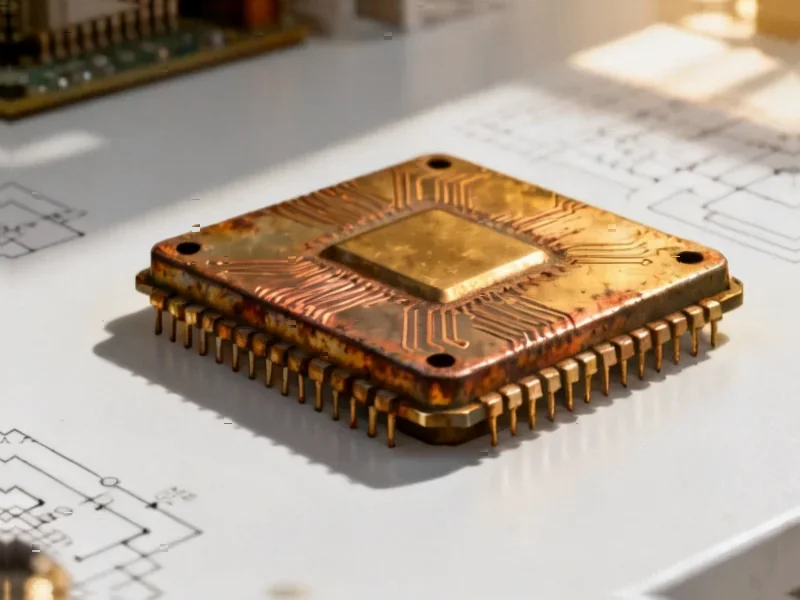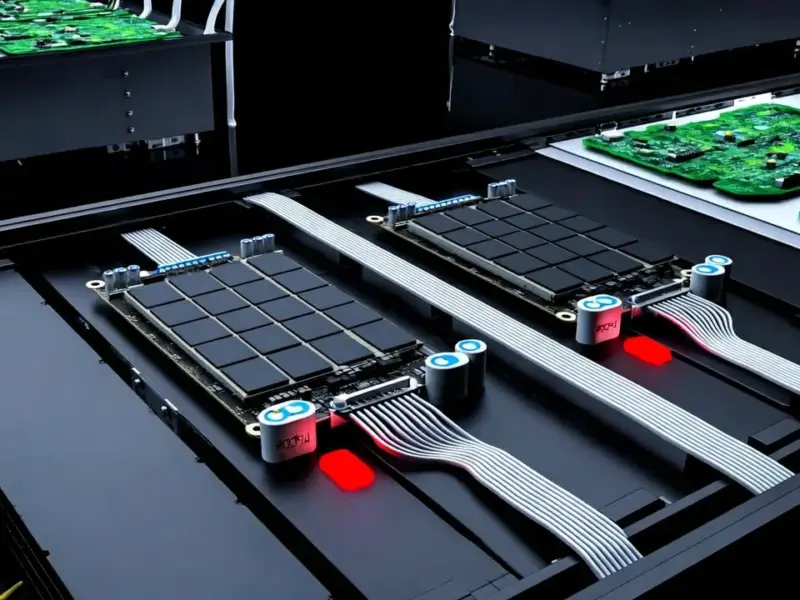According to TechSpot, AMD has revealed a critical security vulnerability in its Zen 5 processors that compromises their hardware-based random number generator, potentially creating predictable encryption keys. Cataloged as AMD-SB-7055 and tracked as CVE-2025-62626, this high-severity flaw affects the RDSEED instruction in 16-bit and 32-bit forms, allowing local attackers to manipulate values and generate zeros non-randomly. The vulnerability was discovered by a Meta engineer in mid-October and wasn’t formally reported through AMD’s coordinated disclosure process. AMD has already released microcode updates for Epyc 9005 “Turin” processors, with patches for consumer Zen 5 chips expected later this month and embedded chip fixes scheduled for January 2026. The company recommends temporary workarounds including switching to the unaffected 64-bit RDSEED variant or disabling RDSEED capability entirely.
Why this is a big deal
Here’s the thing about random number generators – they’re the foundation of modern security. Everything from your encrypted messages to your banking transactions relies on them being truly unpredictable. When RDSEED starts spitting out zeros instead of random numbers, it’s basically like using “password” as your encryption key. And the fact that it incorrectly signals failures as successes? That’s catastrophic. Systems think they’re getting proper randomness when they’re actually getting garbage.
We’ve been here before
This isn’t AMD’s first rodeo with RDSEED problems. Back in 2021, Zen 2-based “Cyan Skillfish” APUs had a similar issue where RDSEED would always return 0xffffffff. Sound familiar? It’s concerning that we’re seeing the same class of vulnerability affecting multiple generations of AMD processors. Makes you wonder – are there fundamental issues with how AMD implements these cryptographic instructions? Or is this just bad luck striking twice?
The patch timeline problem
Now let’s talk about that January 2026 deadline for embedded systems. That’s over a year away for some devices to remain vulnerable. And while the workarounds exist, they require technical know-how that most users don’t have. Switching to 64-bit RDSEED sounds simple until you realize it means developers need to update their software. Disabling RDSEED via boot parameters? That’s not something your average Ryzen 9000 owner is going to figure out. The real question is how many systems will remain unprotected because the mitigation process is too complex for ordinary users.
What you should do
If you’re running Zen 5 hardware, keep an eye out for BIOS updates from your motherboard manufacturer. AMD’s security bulletin has the technical details, but basically you want those microcode updates as soon as they’re available. For now, the risk is somewhat contained since this requires local access, but in cloud environments or shared systems? That’s where things get really concerning. The good news is that RDRAND – AMD’s other random number generator – appears unaffected. So it’s not a complete cryptographic meltdown. But it’s definitely a wake-up call about how fragile our security foundations can be.




